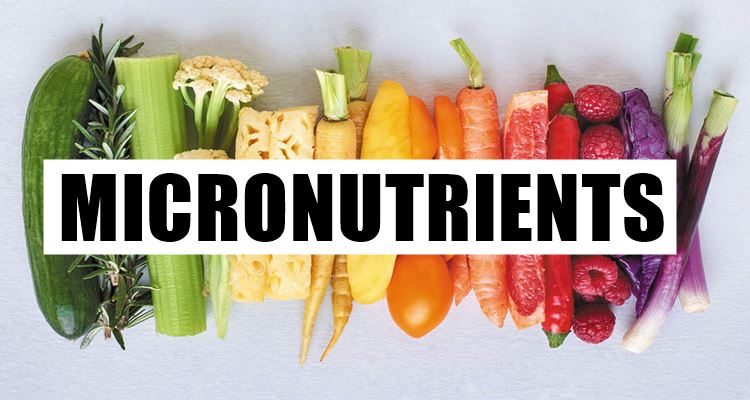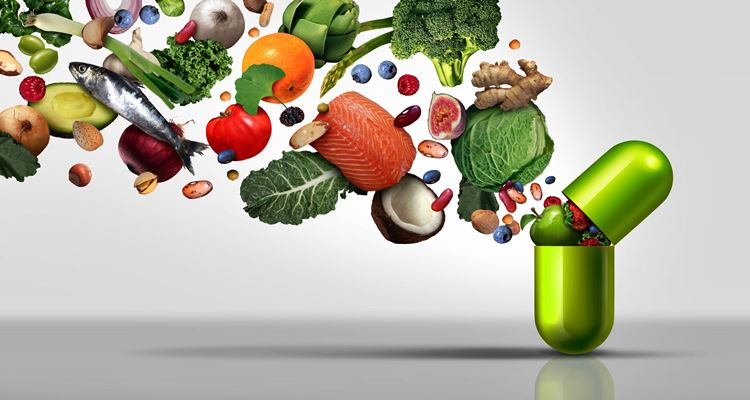WHAT ARE MICRONUTRIENTS – We all need enough nutrition to stay healthy and by saying this, we should get enough vitamins and minerals or micronutrients.
Here’s what you need to know about micronutrients! First is knowing what they are and knowing the sources in order to know how to add them to your diet. Micronutrients vitamins and minerals and not getting enough of them may lead to deficiencies and other health problems.
Micronutrients and Where To Get Them
Here are some facts about micronutrients and their sources.
MICRONUTRIENTS – Micronutrients, often referred to as vitamins and minerals, are vital, and here are some facts about them and where to get them.
What to know about micronutrients?
Vitamins and minerals also called micronutrients play special roles in development, disease prevention, and overall well-being. Vitamins are needed for energy production, immune function, blood clotting, and other functions.
Minerals, on the other hand, are necessary for growth, bone health, fluid balance, and other processes.

According to Health Harvard, there are almost 30 vitamins and minerals the body cannot produce on its own in sufficient amounts and they are referred to as “essential micronutrients”. And consuming the recommended amount daily is important.
As much as we all know, not getting enough of these may lead to deficiency and deficiency may cause unwanted illnesses.
The six essential micronutrients are:
- iron
- vitamin D
- vitamin A
- iodine
- folate
- zinc
According to Harvard’s post, here are some micros to boost the immune system and their sources:
| Vitamin B6 | Chicken, cereals, bananas, pork loin, potatoes with skin |
| Vitamin C | Tomatoes, citrus fruit, sweet peppers, broccoli, kiwi fruit |
| Vitamin E | Sunflower seeds and oil, almonds, safflower oil, peanut butter |
| Magnesium | Whole wheat, legumes, nuts, seeds |
| Zinc | Oysters, beef shank, Alaskan king crab, turkey (dark meat) |
Check out more below along with the food sources based on a post from Healthline:
Water-Soluble Vitamins
| Vitamin B1 (thiamine) | Whole grains, meat, fish |
| Vitamin B2 (riboflavin) | Organ meats, eggs, milk |
| Vitamin B3 (niacin) | Meat, salmon, leafy greens, beans |
| Vitamin B5 (pantothenic acid) | Organ meats, mushrooms, tuna, avocado |
| Vitamin B6 (pyridoxine) | Fish, milk, carrots, potatoes |
| Vitamin B7 (biotin) | Eggs, almonds, spinach, sweet potatoes |
| Vitamin B9 (folate) | Beef, liver, black-eyed peas, spinach, asparagus |
| Vitamin B12 (cobalamin) | Clams, fish, meat |
| Vitamin C (ascorbic acid) | Citrus fruits, bell peppers, Brussels sprouts |
Fat-Soluble Vitamins
| Vitamin A | Retinol (liver, dairy, fish), carotenoids (sweet potatoes, carrots, spinach) |
| Vitamin D | Sunlight, fish oil, milk |
| Vitamin E | Sunflower seeds, wheat germ, almonds |
| Vitamin K | Leafy greens, soybeans, pumpkin |
Macrominerals
| Calcium | Milk products, leafy greens, broccoli |
| Phosphorus | Salmon, yogurt, turkey |
| Magnesium | Almonds, cashews, black beans |
| Sodium | Salt, processed foods, canned soup |
| Chloride | Seaweed, salt, celery |
| Potassium | Lentils, acorn squash, bananas |
| Sulfur | Garlic, onions, Brussels sprouts, eggs, mineral water |
READ ALSO:
- Gym Chest Workout – Benefits and Sample Exercises
- What Causes Heart Palpitations? Its Symptoms & Risk Factors
What can you say about this? Let us know!

